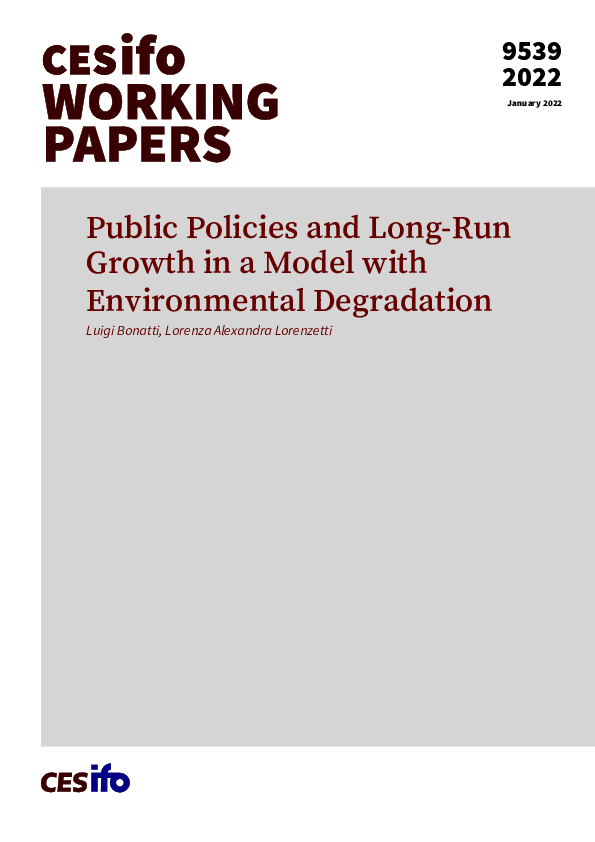Public policies and long-run growth in a model with environmental degradation

Bonatti, Luigi ; Lorenzetti, Lorenza Alexandra
CESifo - Munich
2022
1 v.
climate change ; government attitude ; sustainable development ; well being ; public finance ; environmental policy
CESifo working paper
9539
Government and public administration
English
Bibliogr.
"We study how public policies affects an economy where production emits pollutants and investment in productive assets raises the economy's overall productivity. We explore two hypotheses about how the accumulation of pollutants affects human well-being. Under the first one, there is no limit to the possibility for households to defend themselves against environmental degradation by increasing the use of manmade artifacts, while under the second one there is a threshold beyond which the effects of the accumulation of pollutants cannot be offset by devoting more output to this scope. Under both hypotheses, we compare the laissez-faire (LF) to the socially optimal (SO) path. Then, we check whether the latter can be decentralized by using the policy instruments available to the government. Under the first hypothesis, GDP and pollutants grow slower along the SO balanced growth path (BGP) than along the LF BGP, while people's well-being is greater along the former. Therefore, green policies driving the economy along its OP tend to reduce GDP growth. Under the second hypothesis, LF may lead to a “climate catastrophe” by determining unbounded growth, which—without incentives to invest in green technology—drives the amount of pollutants beyond its maximum compatible with life on earth."
Digital
The ETUI is co-funded by the European Union. Views and opinions expressed are however those of the author(s) only and do not necessarily reflect those of the European Union or the ETUI.